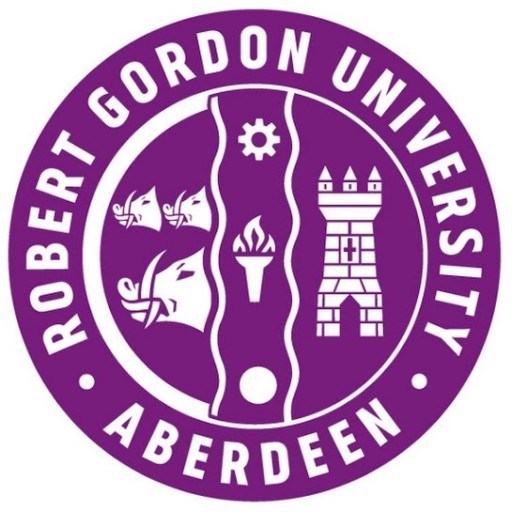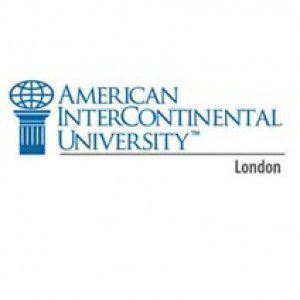Photos of university / #sunderlanduni
Fashion Journalism at the University of Sunderland offers a comprehensive and dynamic programme designed to equip students with the essential skills and knowledge needed to succeed in the fast-paced world of fashion media. This degree combines the creative elements of fashion with the technical aspects of journalism, ensuring graduates are well-prepared to produce compelling content across various platforms such as print, online, broadcast, and social media. Throughout the course, students will explore the history and culture of fashion, develop their writing and editing skills, learn digital storytelling techniques, and gain practical experience in reporting, interviewing, and producing fashion-related stories. The programme emphasizes the importance of digital literacy, social media engagement, and multimedia production, reflecting current industry standards and trends. Students will have the opportunity to work on real-world projects, collaborate with industry professionals, and benefit from the university’s state-of-the-art facilities. The course also includes placements and internship opportunities, providing valuable industry connections and hands-on experience. By the end of the programme, graduates will be equipped with a strong portfolio, critical understanding of fashion media, and the professional skills necessary to pursue careers in fashion journalism, editorial roles, promotional work, and digital content creation within the fashion industry. The University of Sunderland’s supportive learning environment and dedicated teaching staff ensure students receive personalized guidance to develop their individual style and voice as future fashion journalists.
The Fashion Journalism undergraduate program at the University of Sunderland offers students a comprehensive education that combines the creative and technical aspects of journalism within the dynamic world of the fashion industry. Throughout the course, students develop a deep understanding of fashion trends, branding, and media communication, equipping them with the skills required to succeed in a fast-paced environment. The program covers a wide range of topics including fashion history, media analysis, content creation, digital journalism, and ethical considerations in fashion reporting. Students engage in practical projects such as writing articles, producing multimedia content, and managing social media platforms, enabling them to build a diverse portfolio of work. The curriculum also emphasizes industry placements and networking opportunities, providing students with real-world experience and professional connections that can be vital for employment after graduation. Students learn how to critically analyze fashion news, conduct interviews, and produce compelling stories that appeal to a variety of audiences. The program encourages creativity, innovation, and originality, preparing graduates to work confidently in journalism, magazine publishing, online media, or fashion brands. Dedicated faculty with industry backgrounds guide students through the latest trends and technological advances, ensuring that they stay ahead in a competitive industry. The University of Sunderland’s strong industry links and focus on employability mean that students are well-positioned to launch successful careers in fashion journalism. The program’s flexible structure also allows students to tailor their learning to their interests, whether that’s specializing in digital media, magazine editing, or broadcast journalism. Overall, this program aims to produce versatile, informed, and skilled fashion journalists who can shape the future of fashion media and storytelling.
Applicants are typically required to hold a minimum of a Level 3 qualification, such as A-Levels, BTECs, or an equivalent qualification, demonstrating her/his commitment and suitability for the programme. Relevant work experience in the fashion or journalism industry can be advantageous but is not mandatory. International students must meet English language proficiency requirements, generally evidenced by a score of at least IELTS 6.0 with no component less than 5.5, or an equivalent qualification accepted by the university. The university may also consider a portfolio of work or personal statement demonstrating passion for fashion journalism and relevant skills. Applicants may be asked to attend an interview or provide a sample of written work to assess their communication skills and interest in the field. Certain advanced entry points or credit transfers might be available for students with prior higher education or professional experience, subject to assessment. Additionally, the university values applicants who demonstrate creativity, curiosity about fashion trends, and the ability to analyze and communicate effectively about developments in the fashion industry. All applicants are encouraged to submit a well-written personal statement outlining their aspirations, relevant experiences, and motivation for pursuing a degree in Fashion Journalism. The admissions process aims to select candidates with a strong potential to succeed in a dynamic and highly competitive industry.
The Fashion Journalism program at the University of Sunderland offers a range of financing options to support students throughout their studies. International students are encouraged to explore various funding sources, including government-sponsored scholarships, merit-based awards, and privately funded bursaries. The university provides detailed guidance on scholarship opportunities, which can significantly reduce the overall cost of tuition fees. Additionally, students may consider applying for external scholarships offered by industry organizations, fashion industry associations, and charitable foundations that support emerging journalists and media professionals.
The university's financial services team offers comprehensive advice on student loans, payment plans, and budgeting strategies to help students manage their expenses effectively. For UK residents, the government student loan scheme provides access to tuition fee loans and maintenance loans, which are repayable after graduation based on income levels. International students might also benefit from scholarships specifically designated for their demographic, as well as external funding from their home countries or international organizations supporting education abroad.
Part-time work opportunities are available on campus and in the surrounding area, allowing students to earn income while studying. The university's Careers Service assists students with employment placement, internships, and industry collaborations, which can supplement their financing and provide valuable professional experience.
Students are advised to plan their finances early, review eligibility criteria for all available funding options, and apply within specified deadlines. The university frequently updates its scholarship offerings; therefore, prospective and current students should regularly check the official Sunderland website and contact the financial aid office for the most current information. Overall, the university aims to make education accessible by providing diverse financial support avenues, ensuring that students can focus on their academic and professional development in Fashion Journalism without undue financial hardship.
The Fashion Journalism program at the University of Sunderland offers students an in-depth understanding of the dynamic world of fashion media. Designed to develop both practical skills and theoretical knowledge, the course prepares graduates for diverse career opportunities within the fashion and media industries. Students are introduced to the history and evolution of fashion journalism, alongside current trends and industry best practices. The program emphasizes essential skills such as journalism writing, editing, digital content creation, and multimedia storytelling, enabling students to produce compelling articles, blog posts, and social media content tailored to fashion audiences.
Academic modules often include Fashion Communication, Fashion Media Industries, Fashion Campaigns and Branding, as well as Practical Journalism Skills. Students also have opportunities for real-world experience through industry placements, live projects, and collaborations with fashion brands and media outlets. The program utilizes modern facilities, including dedicated newsroom spaces, editing suites, and digital production labs, allowing students to hone their technical skills in a professional environment.
Faculty members are industry professionals with extensive experience in fashion journalism, media production, and communication. They provide mentorship and industry insights, fostering a strong network for students’ career development. The university's connections with fashion publishers, magazines, and online platforms ensure students are well-positioned for internships and employment post-graduation. Graduates of the program have gone on to work as fashion editors, journalists, digital content producers, and social media managers within leading fashion publications, online magazines, and branding agencies.
Overall, the Fashion Journalism course at the University of Sunderland equips students with the creativity, technical expertise, and industry understanding needed to succeed in the fast-paced and ever-changing world of fashion media. It combines academic knowledge with practical application, ensuring graduates are confident and capable of making a meaningful impact in the industry.







